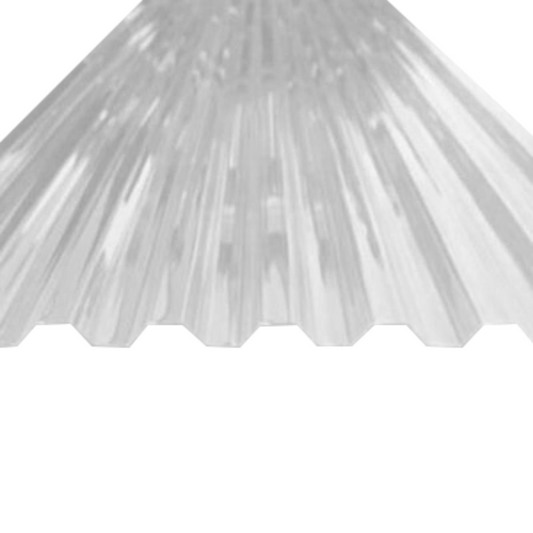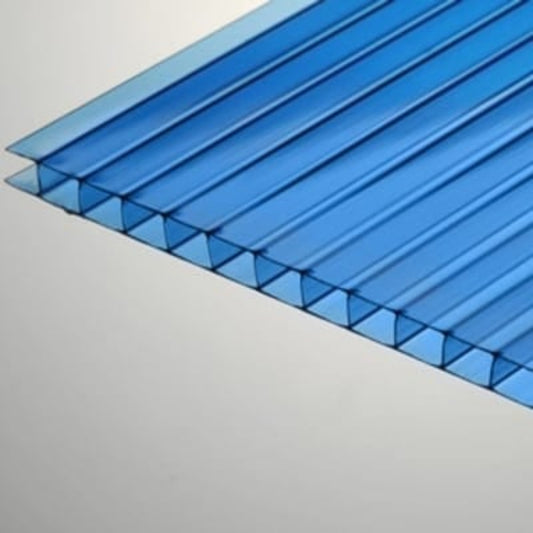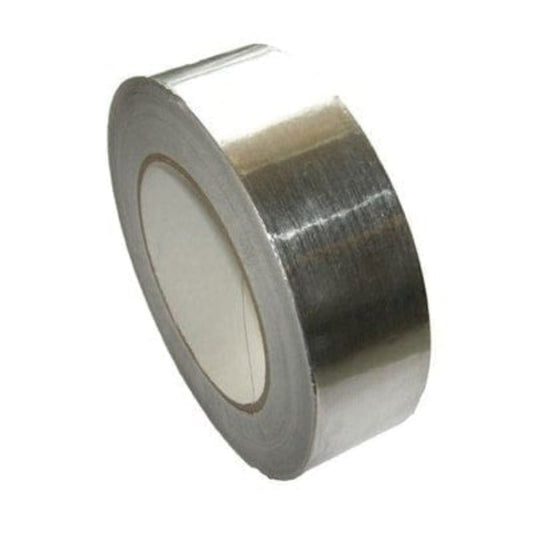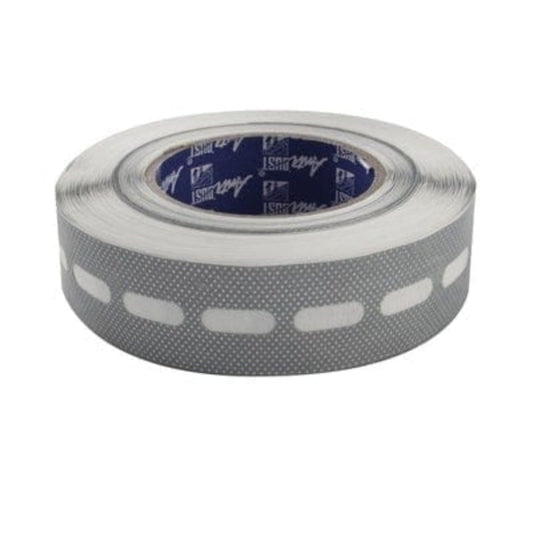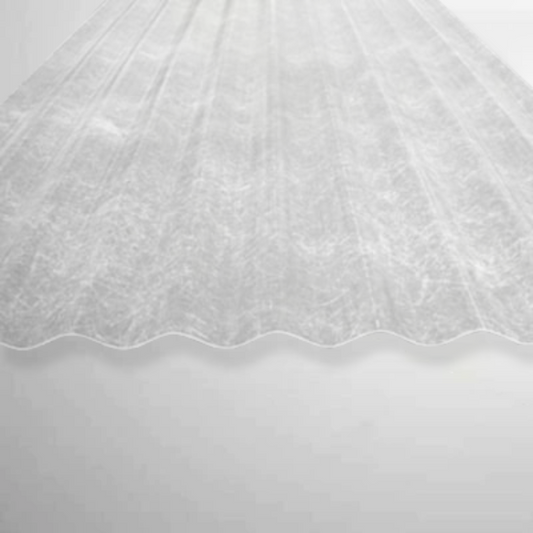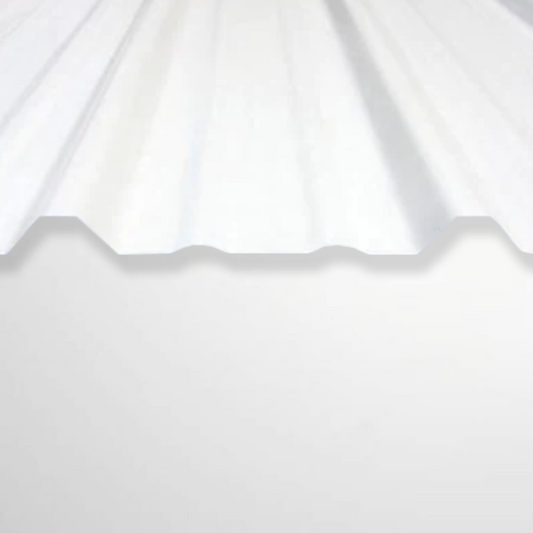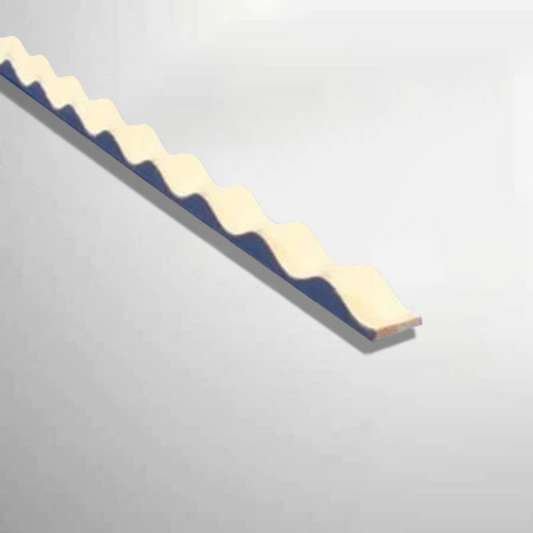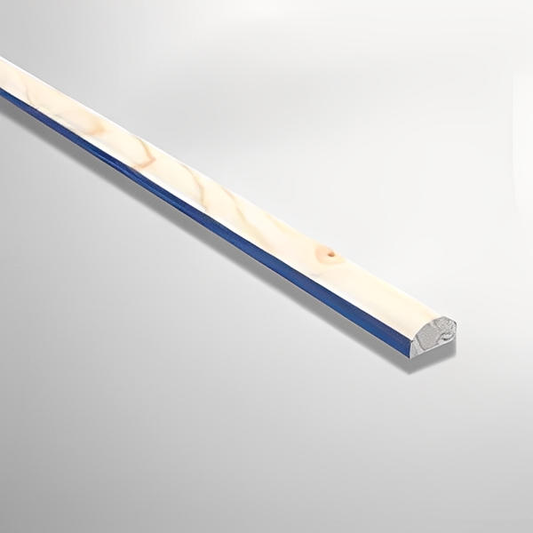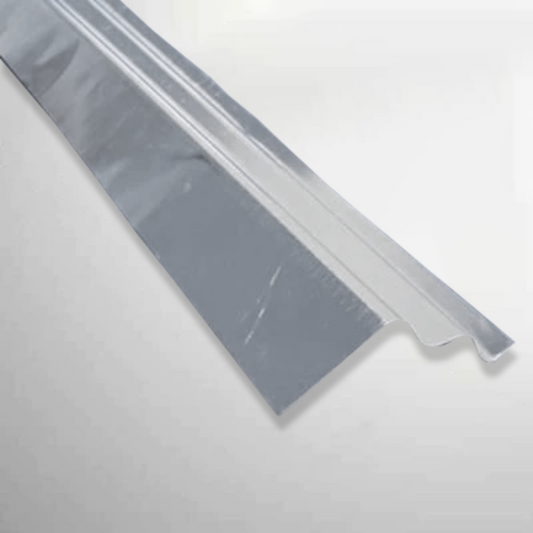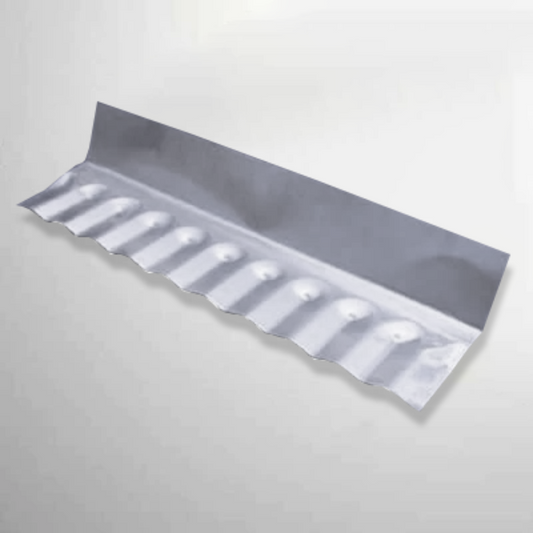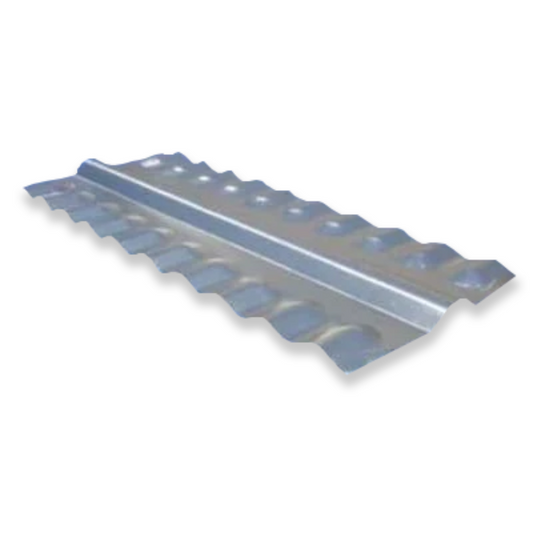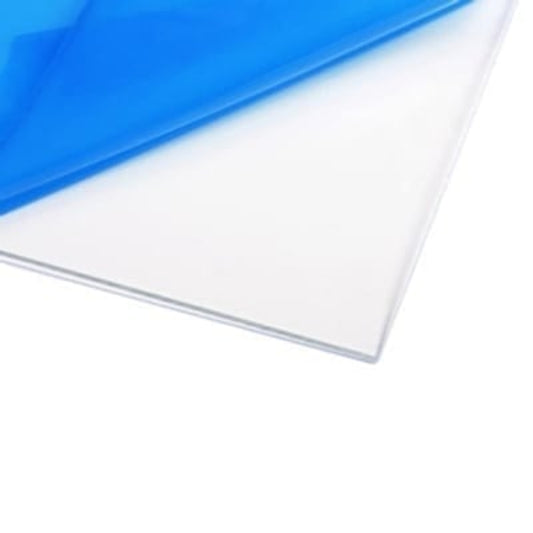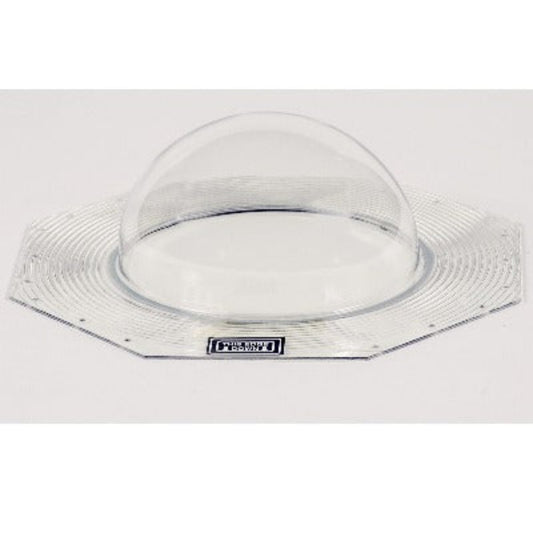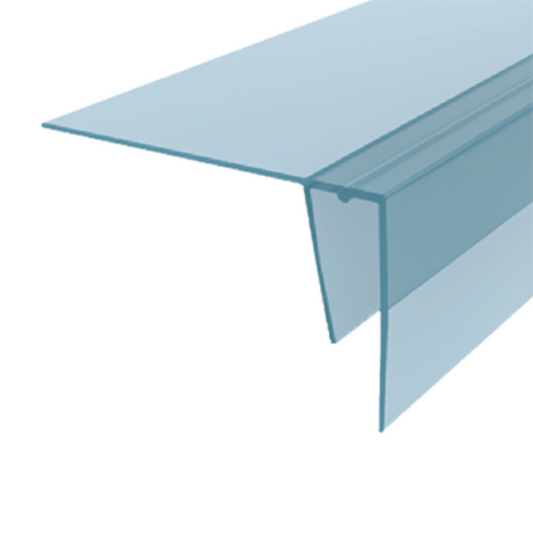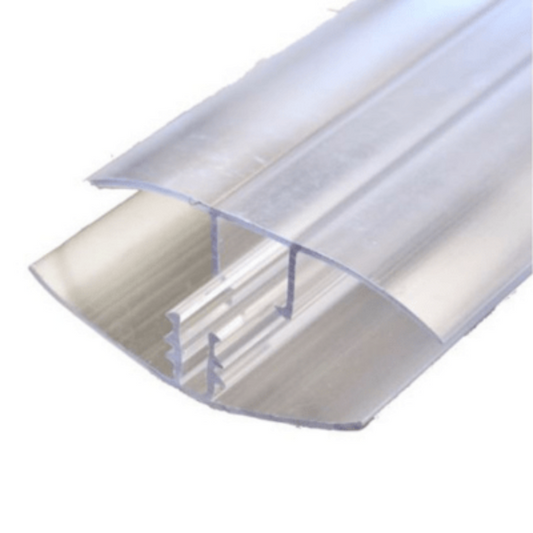-
DIY Polycarbonate Lean-To Roof Kit
Vendor:Roofing4US PolycarbonatefromRegular price $324.29Sale price $324.29 Regular priceUnit price per -
Twinwall Polycarbonate Sheet - All Sizes
Vendor:Roofing4US PolycarbonatefromRegular price $41.78Sale price $41.78 Regular priceUnit price per -
U-Channel - All Sizes
Vendor:Roofing4US PolycarbonatefromRegular price $7.27Sale price $7.27 Regular priceUnit price per -
H-Channel For Twinwall Polycarbonate Sheet - All Sizes
Vendor:Roofing4US PolycarbonatefromRegular price $17.22Sale price $17.22 Regular priceUnit price per -
Multiwall Tape - 1 In x 150ft
Vendor:Roofing4US PolycarbonateRegular price $60.00Sale price $60.00 Regular priceUnit price per -
Multivent Tape - 1 In x 110ft
Vendor:Roofing4US PolycarbonateRegular price $61.64Sale price $61.64 Regular priceUnit price per -
6 Oz Corrugated Fiberglass Sheet - All Sizes
Vendor:Roofing4US PolycarbonatefromRegular price $61.02Sale price $61.02 Regular priceUnit price per -
8 Oz Clear Corrugated Fiberglass Sheet - All Sizes
Vendor:Roofing4US PolycarbonatefromRegular price $95.93Sale price $95.93 Regular priceUnit price per -
R-Panel 8 Oz White Fiberglass Sheet - All Sizes
Vendor:Roofing4US PolycarbonatefromRegular price $144.61Sale price $144.61 Regular priceUnit price per -
Clear Acrylic Sheet - All Sizes
Vendor:Roofing4US PolycarbonatefromRegular price $52.61Sale price $52.61 Regular priceUnit price per -
Replacement Dome For Tubular Skylight - All Sizes
Vendor:Sun-TekfromRegular price $112.10Sale price $112.10 Regular priceUnit price per$0.00 -
Snap H Profile - 6mm - 10mm - All Sizes
Vendor:Roofing4US PolycarbonatefromRegular price $41.70Sale price $41.70 Regular priceUnit price per
People also searched for...
polycarbonate clear multiwall roof panelPolycarbonate Roof Panels | Polycarbonate Roof Panel | Polycarbonate Roofing
Polycarbonate Roof Panels
Polycarbonate roof panels are versatile roofing materials crafted from a durable and transparent thermoplastic called polycarbonate. These panels are designed to provide reliable protection for various structures while allowing natural light to pass through, creating a well-lit and comfortable indoor environment. Polycarbonate roof panels have become increasingly popular in both residential and commercial construction due to their outstanding properties and numerous benefits.
Key Features of Polycarbonate Type Roof Panels:
Exceptional Strength: Polycarbonate roof panels are renowned for their high impact resistance, making them virtually unbreakable. This robustness ensures long-lasting durability, even in harsh weather conditions.
UV Protection: Many polycarbonate roof panels are equipped with UV-resistant coatings, safeguarding against harmful ultraviolet rays. This feature prevents yellowing and helps maintain the panel's transparency over time.
Lightweight: These panels are significantly lighter than traditional roofing materials like glass or metal. Their lightweight nature simplifies installation and reduces the structural load on the building, making them suitable for a wide range of applications.
Energy Efficiency: Some polycarbonate roof panels feature multiwall or twin-wall designs that create air pockets, providing improved thermal insulation. This results in better temperature regulation and energy efficiency, contributing to reduced heating and cooling costs.
Transparency and Light Transmission: One of the primary advantages of polycarbonate roof panels is their excellent light transmission. They allow natural light to penetrate, reducing the need for artificial lighting during the day and creating a bright and inviting interior space.
Design Flexibility: Polycarbonate roof panels can be easily cut and shaped to fit various roof designs, offering architects and builders greater design flexibility and creative possibilities.
Common Applications of Polycarbonate Type Roof Panels:
Greenhouses and Conservatories: Polycarbonate roof panels are extensively used in greenhouse construction, providing optimal light transmission for plant growth while protecting against the elements.
Skylights and Canopies: These panels are popular choices for skylights and canopies, offering natural illumination and weather protection for both residential and commercial buildings.
Patio Covers and Sunrooms: Polycarbonate roof panels create ideal covers for outdoor patios and sunrooms, allowing homeowners to enjoy the outdoors while staying sheltered from rain or intense sunlight.
Commercial Structures: Polycarbonate roof panels are used in various commercial buildings, such as shopping malls, stadiums, and airports, to enhance interior lighting and create visually appealing spaces.
Residential Roofing: Many homeowners opt for polycarbonate roof panels in certain areas of their homes, such as pergolas or carports, to add a touch of modernity and natural light.
Polycarbonate roof panels are a modern and reliable roofing solution, combining strength, transparency, and energy efficiency. With their outstanding features and diverse applications, these panels have become a popular choice for architects, builders, and homeowners seeking a durable and visually appealing roofing material. Whether it's for greenhouses, skylights, or patio covers, polycarbonate roof panels offer a winning combination of practicality and aesthetic appeal.
Advantages of polycarbonate roofing
Polycarbonate roofing is becoming increasingly popular in various construction projects due to its numerous benefits. Here, we highlight the key advantages of using polycarbonate roofing:
Exceptional Durability: Polycarbonate roofing boasts remarkable strength and is practically unbreakable. Its high impact resistance allows it to withstand harsh weather conditions, including hail and heavy rain, without any cracking or shattering. As a result, it offers long-lasting performance.
Lightweight Nature: Unlike traditional roofing materials such as glass or metal, polycarbonate roofing is significantly lighter. This characteristic not only makes it easier to handle and install but also reduces labor and structural support requirements, making it a practical choice.
Superior Light Transmission: One of the most appealing features of polycarbonate roofing is its ability to allow natural light to pass through almost like glass. This feature enhances daylighting in interior spaces, reducing the need for artificial lighting during the day and creating a bright and inviting atmosphere.
UV Protection: To maintain the transparency and clarity of the roofing panels over time, many polycarbonate roofing sheets come with UV-resistant coatings. These coatings effectively shield against harmful ultraviolet rays, preventing yellowing and ensuring long-term aesthetics.
Energy Efficiency: Some polycarbonate roofing panels are designed with multiwall or twin-wall structures, which create air pockets that improve thermal insulation. This energy-efficient design helps regulate indoor temperatures, reducing the reliance on heating or cooling systems.
Design Flexibility: Architects and builders appreciate the design flexibility of polycarbonate roofing. It can be easily cut and shaped to fit various roof designs and architectural requirements, allowing for the creation of unique and visually appealing structures.
Versatility: Polycarbonate roofing finds applications in a wide range of projects, including commercial, industrial, and residential settings. Its use extends to greenhouses, skylights, canopies, patio covers, and more, making it a versatile choice.
Cost-Effective: Despite its numerous benefits, polycarbonate roofing remains a cost-effective option compared to traditional roofing materials. Moreover, its lighter weight contributes to reduced transportation and installation costs.
Low Maintenance: Maintaining polycarbonate roofing is hassle-free. Routine cleaning with mild soap and water is usually sufficient to keep the panels in excellent condition, saving time and effort on maintenance.
How long does a polycarbonate roof last?
Polycarbonate roofs are renowned for their exceptional durability and long life span. The longevity of a polycarbonate roof can vary depending on various factors, including the quality and thickness of the panels, installation methods, and local climate conditions. Typically, a well-maintained polycarbonate roof can endure anywhere from 15 to 30 years.
Several factors can influence the lifespan of a polycarbonate roof. The caliber of the material plays a vital role, as opting for high-quality polycarbonate panels with UV protection can significantly extend the roof's service life. Thicker panels are generally more resistant to impact and tend to last longer than thinner ones.
Proper installation by experienced professionals ensures the roof's stability and reduces the likelihood of damage over time. Regular maintenance, such as periodic cleaning to remove debris and grime, helps prevent degradation and prolongs the roof's usability.
The local climate conditions also have a substantial impact on the roof's longevity. Regions with extreme weather, such as frequent hail, heavy snow, or intense sunlight, may affect the roof's overall lifespan.
Incorporating UV protection into the polycarbonate material provides an additional shield against discoloration and degradation from prolonged exposure to sunlight.
Lastly, it is crucial to avoid exposing the polycarbonate roof to harmful chemicals, as this can weaken the material and reduce its lifespan.
By taking these factors into consideration and adopting proper care and maintenance practices, the polycarbonate roof can reach its full potential and provide reliable shelter for many years.
Which is the cheapest roofing panel?
The affordability of roofing panel materials can vary depending on your location, local suppliers, and market conditions. However, traditionally, asphalt shingles have often been considered one of the most economical roofing options in many regions.
Asphalt shingles are favored for their cost-effectiveness, ease of installation, and wide availability. They come in various styles and colors, making them suitable for different architectural designs. Furthermore, their durability and fire resistance makes them a practical choice for budget-conscious homeowners.
Nevertheless, it's important to note that the prices of roofing materials can fluctuate over time. To find the most budget-friendly option for your specific needs, it's essential to conduct thorough research and compare prices from various suppliers in your area. Additionally, it's worth considering that while asphalt shingles may have a lower upfront cost, other roofing materials could provide better long-term value due to their enhanced durability and potential energy-saving benefits.
How durable is polycarbonate roofing?
Polycarbonate roofing is renowned for its exceptional durability. It is a strong and resilient material, making it a popular choice for a wide array of uses.
Polycarbonate roofing panels have high resistance to impact, allowing them to endure harsh conditions like hail, falling objects, and severe weather without easily cracking or breaking. This sturdiness makes them ideal for regions prone to extreme weather.
Furthermore, polycarbonate roofing provides excellent UV resistance. High-quality panels are often coated to protect against the damaging effects of prolonged sun exposure, like fading or yellowing. This UV protection preserves the clarity and appearance of the panels over time.
Additionally, polycarbonate roofing is lightweight yet robust, reducing the burden on the building's structure. This feature is especially advantageous for large roofing projects and areas with specific load-bearing requirements.
The material's inherent toughness also grants it resistance to many chemicals, further enhancing its durability in various industrial and agricultural settings.
With proper installation and regular upkeep, polycarbonate roofing can have a long lifespan, typically lasting between 15 to 30 years or more, depending on the material's quality and local environmental factors.
Overall, polycarbonate roofing's durability, impact resistance, UV protection, and chemical resistance make it a reliable and long-lasting roofing option for different residential, commercial, and industrial applications.
What is polycarbonate used for other than roofing?
Polycarbonate serves a multitude of purposes beyond roofing. It finds application in various industries:
Greenhouses: Polycarbonate is commonly used in constructing greenhouse panels, offering both durability and excellent light transmission for optimal plant growth while safeguarding against adverse weather.
Safety Glazing: Polycarbonate is favored for safety glazing, such as in police riot shields, safety goggles, face shields, and protective eyewear, owing to its impact resistance and shatterproof characteristics.
Electronics: The electronics industry employs polycarbonate for laptop and mobile phone casings, tablet covers, and camera lenses, taking advantage of its lightweight and scratch-resistant properties.
Automotive Industry: Polycarbonate serves automotive applications, including headlamp lenses, sunroofs, and instrument panel covers, due to its impact resistance and optical clarity.
Construction Materials: Apart from roofing, polycarbonate is utilized in construction for skylights, partition walls, canopies, and sound barriers, offering ease of handling during installation.
Medical Devices: Medical applications utilize polycarbonate in devices like infusion pumps, blood oxygenators, and medical casings, benefiting from its biocompatibility and sterilization resistance.
Packaging: Polycarbonate is employed in packaging for reusable water bottles, food containers, and baby bottles, thanks to its durability and break-resistant properties.
CDs, DVDs, and Blu-ray Discs: In the past, polycarbonate was widely used in optical discs due to its optical clarity and moldable properties.
Aircraft Windows: Polycarbonate is occasionally used for small aircraft windows due to its lightweight nature and impact resistance.
These examples illustrate the diverse range of applications where polycarbonate's unique combination of transparency, toughness, and versatility make it an invaluable material.
What are the pros and cons of polycarbonate?
Polycarbonate is a versatile material with several advantages and disadvantages. Here are the pros and cons of using polycarbonate:
Advantages of Polycarbonate:
Exceptional Impact Resistance: Polycarbonate exhibits remarkable durability and can withstand heavy impacts, making it ideal for applications that require breakage protection.
Lightweight Nature: Polycarbonate is much lighter than glass, facilitating easier handling and installation, especially in large structures like skylights and greenhouse panels.
Superior Transparency: With its high optical clarity, polycarbonate effectively transmits light, making it a suitable choice for windows and display panels.
Wide Temperature Range: Polycarbonate displays remarkable resistance to temperature fluctuations, making it suitable for use in both hot and cold environments.
UV Protection: Certain polycarbonate products come with built-in UV protection, ensuring they remain resilient and free from yellowing or deterioration when used outdoors.
Thermal Insulation: Polycarbonate provides effective thermal insulation, contributing to energy efficiency in specific applications.
Versatile Molding: Its easy moldability allows polycarbonate to take on various shapes and designs, enabling creative and intricate applications.
Chemical Resistance: Polycarbonate showcases excellent resistance to many chemicals, making it a viable option for applications exposed to harsh substances.
Disadvantages of Polycarbonate:
Scratch Vulnerability: Polycarbonate can be susceptible to scratching, potentially affecting its appearance and clarity over time.
Flammability Concerns: While durable, polycarbonate is not highly flame-resistant and can melt or burn under high temperatures.
Higher Cost: Polycarbonate tends to be more expensive compared to some other plastics, which may impact project costs, especially for large-scale applications.
Yellowing and Weathering: Without UV protection, polycarbonate may experience yellowing and degradation when exposed to prolonged sunlight.
Limited Rigidity: Polycarbonate possesses lower rigidity than glass, making it less suitable for applications requiring extreme stiffness or heavy loads.
Challenges with Painting: The surface of polycarbonate can be difficult to paint or adhere to, limiting certain design options.
Thermal Expansion Considerations: Polycarbonate can undergo thermal expansion and contraction, necessitating careful planning for certain applications.
In conclusion, polycarbonate offers remarkable impact resistance, transparency, and thermal properties, making it valuable for diverse applications. However, it is essential to consider factors like scratch vulnerability, flammability, and cost while evaluating its suitability for specific projects. Careful consideration of project requirements will determine if polycarbonate is the optimal choice for the intended application.
What is clear polycarbonate and its application?
Clear polycarbonate is a type of polycarbonate material known for its excellent optical clarity and transparency, allowing unobstructed light passage. It is commonly utilized in applications where visibility and light transmission are critical. Clear polycarbonate is often available in sheet form, making it easy to use for various purposes.
Applications of Clear Polycarbonate:
Transparent Glazing: Clear polycarbonate is extensively used as a glazing material for windows, skylights, and architectural structures. Its optical clarity enables natural light entry while providing impact resistance and safety.
Safety and Security Shields: Due to its outstanding impact resistance, clear polycarbonate finds application in safety and security shields, protective barriers, riot shields, and machine guards.
Eyewear Lenses: Clear polycarbonate is a favored material for eyeglass lenses and safety goggles, offering users lightweight comfort and excellent impact protection.
Optical Discs: Clear polycarbonate is employed in the manufacturing of CDs, DVDs, Blu-ray discs, and other optical media, providing scratch resistance and reliable optical clarity for data storage and entertainment.
Display Panels: Clear polycarbonate is used in display panels for electronic devices, touchscreens, and digital signage, offering a durable and transparent surface.
Greenhouses: Clear polycarbonate sheets are utilized in greenhouse construction, facilitating sunlight access to plants while ensuring thermal insulation and safeguarding against harmful UV radiation.
Automotive Components: Clear polycarbonate is used in automotive applications, such as headlights, tail lights, sunroofs, and instrument panels, due to its impact resistance and optical clarity.
Aircraft Windows: Clear polycarbonate is employed for aircraft windows, providing visibility and safety in the aerospace industry.
Medical Devices: Clear polycarbonate is utilized in medical applications, such as incubators, medical equipment housing, and safety shields, owing to its biocompatibility and optical clarity.
Food Containers: Clear polycarbonate is applied in food containers, such as reusable water bottles and food storage containers, due to its lightweight and shatter-resistant properties.
Clear polycarbonate's exceptional transparency and impact resistance make it a versatile material for a wide range of applications in industries such as construction, electronics, automotive, aerospace, and healthcare. Its ability to effectively transmit light while providing durability and safety features renders it indispensable in numerous modern applications.
Is acrylic better than polycarbonate?
The suitability of acrylic or polycarbonate depends on the specific needs and requirements of the application. Each material has its own strengths and weaknesses, making them suitable for different purposes. Here is a comparison to help you understand which material may be better for certain situations:
Acrylic:
Advantages: Acrylic offers excellent optical clarity, similar to glass, making it ideal for applications where transparency is crucial. It is lightweight, rigid, and easy to work with, and it is also cost-effective for certain projects. Properly treated acrylic provides good UV resistance.
Disadvantages: Acrylic is more brittle and less impact-resistant compared to polycarbonate. It is susceptible to scratching, which can affect its appearance over time. Acrylic is not as flexible as polycarbonate, making it more prone to breakage upon impact.
Polycarbonate:
Advantages: Polycarbonate is highly impact-resistant and virtually unbreakable, making it suitable for applications requiring durability and resistance to impacts or vandalism. It is more flexible than acrylic, allowing it to deform without breaking. Polycarbonate has better scratch resistance and can maintain its appearance for longer periods. It also offers superior UV resistance, especially with UV protective coatings.
Disadvantages: Polycarbonate may have slightly lower optical clarity compared to acrylic, although it is still transparent. It is generally more expensive than acrylic, which can impact the overall project cost.
Choosing Between Acrylic and Polycarbonate:
Transparency and Clarity: If optical clarity is crucial and impact resistance is not a major concern, acrylic may be the better choice.
Impact Resistance and Durability: For applications requiring high impact resistance and long-term durability, especially in outdoor or safety-related uses, polycarbonate is the superior option.
Budget: If cost-effectiveness is a priority and impact resistance is not critical, acrylic may be the more suitable material.
UV Exposure: In applications exposed to UV radiation, polycarbonate's superior UV resistance becomes an essential consideration.
Flexibility: For applications where flexibility is important, polycarbonate's higher flexibility makes it a preferred choice.
Welcome to the Polycarbonate Roof Panels category on Roofing4us.com. Our curated selection offers a plethora of choices, each designed to cater to different roofing requirements. Dive into our guide to understand the different product types, their practical uses, and how to choose the right fit for your specific needs.
Benefits of Polycarbonate Roof Panels
Weather Resilience: These panels are renowned for their ability to withstand various weather conditions. Whether you're contending with harsh sunlight, hail, or heavy rain, polycarbonate panels are up to the challenge.
High Impact Resistance: Expect durability as a given. Polycarbonate panels are tough and can resist impacts that would damage other materials.
Optimal Light Transmission: Due to their transparent nature, these panels allow an abundance of light to pass through, making them ideal for structures like greenhouses where light is essential.
Thermal Insulation: Polycarbonate roof panels are effective insulators, ensuring your space remains temperate and energy efficient.
Lightweight Design: Ease of installation is a prominent feature, thanks to the panels' lightweight nature.
Types of Polycarbonate Roof Panels
1. DIY Polycarbonate Lean-To Roof Kit
- Use Case: Perfect for homeowners looking for a straightforward installation. This kit is particularly suited for smaller projects like lean-to extensions or canopy setups.
- Price: $349.95
2. Clear Hammered Sheet
- Use Case: With its distinctive hammered texture, this sheet is suitable for decorative purposes and can also be used in areas where diffused light is desirable.
- Price: $134.51
3. Greca Polycarbonate Corrugated Clear Roofing Sheet
- Use Case: Ideal for structures that need a traditional corrugated look. It's especially suited for sheds, carports, and patios. Available in various colors, it can match different aesthetic preferences.
- Price: $41.89
4. Multiwall Polycarbonate Sheet
- Use Case: These sheets offer superior insulation with multiple layers. They are ideal for structures requiring enhanced thermal insulation, such as greenhouses or sunrooms.
- Availability: CALL TO INQUIRE
5. Twinwall Polycarbonate Sheet
- Use Case: Twinwall sheets are perfect for scenarios where a balance between insulation and light transmission is crucial. They're often used in greenhouses and conservatories.
- Price: Regular price of $73.81, currently on sale for $66.43.
How to Choose the Right Panel
Determine Your Primary Need: If insulation is your main concern, consider the Multiwall or Twinwall sheets. For light transmission, the Clear Hammered Sheet or Corrugated Clear Roofing Sheet may be preferable.
Consider Aesthetics: The Greca Corrugated Sheet, with its distinct style, can add a traditional touch, while the Clear Hammered Sheet brings in a more decorative element.
Budget Constraints: While all our products are priced competitively, your budget might steer your choice. The Greca Polycarbonate Corrugated Sheet is a cost-effective choice, while the DIY Kit provides an all-in-one solution.

 Rated Excellent
Rated Excellent

